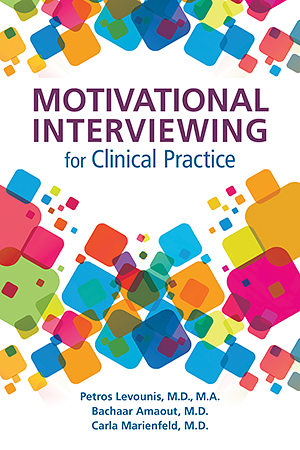Chapter 3.Engaging
Sections
Excerpt
Engagement is the first step in the therapeutic relationship and constitutes the foundation of motivational interviewing (MI) work. It is the process by which the patient and clinician agree to connect, to disclose, and to work together comfortably. The engaging process is variable and dynamic; sometimes the process occurs early, with relative ease, while at other times it requires effort from both the clinician and the patient. Many factors can influence the strength of the relationship and the pace at which engagement happens. The thoughts and feelings a clinician or a patient may have during the encounter can and will affect engagement. For example, diverse experiences and vulnerabilities the patient and clinician possess can affect the engaging process. In this way, engaging is a two-way process. To promote patient collaboration, the clinician should be aware of these factors and work proactively to provide an environment where the patient feels safe to share information.
Access content
To read the fulltext, please use one of the options below to sign in or purchase access.- Personal login
- Institutional Login
- Sign in via OpenAthens
- Register for access
-
Please login/register if you wish to pair your device and check access availability.
Not a subscriber?
PsychiatryOnline subscription options offer access to the DSM-5 library, books, journals, CME, and patient resources. This all-in-one virtual library provides psychiatrists and mental health professionals with key resources for diagnosis, treatment, research, and professional development.
Need more help? PsychiatryOnline Customer Service may be reached by emailing [email protected] or by calling 800-368-5777 (in the U.S.) or 703-907-7322 (outside the U.S.).



